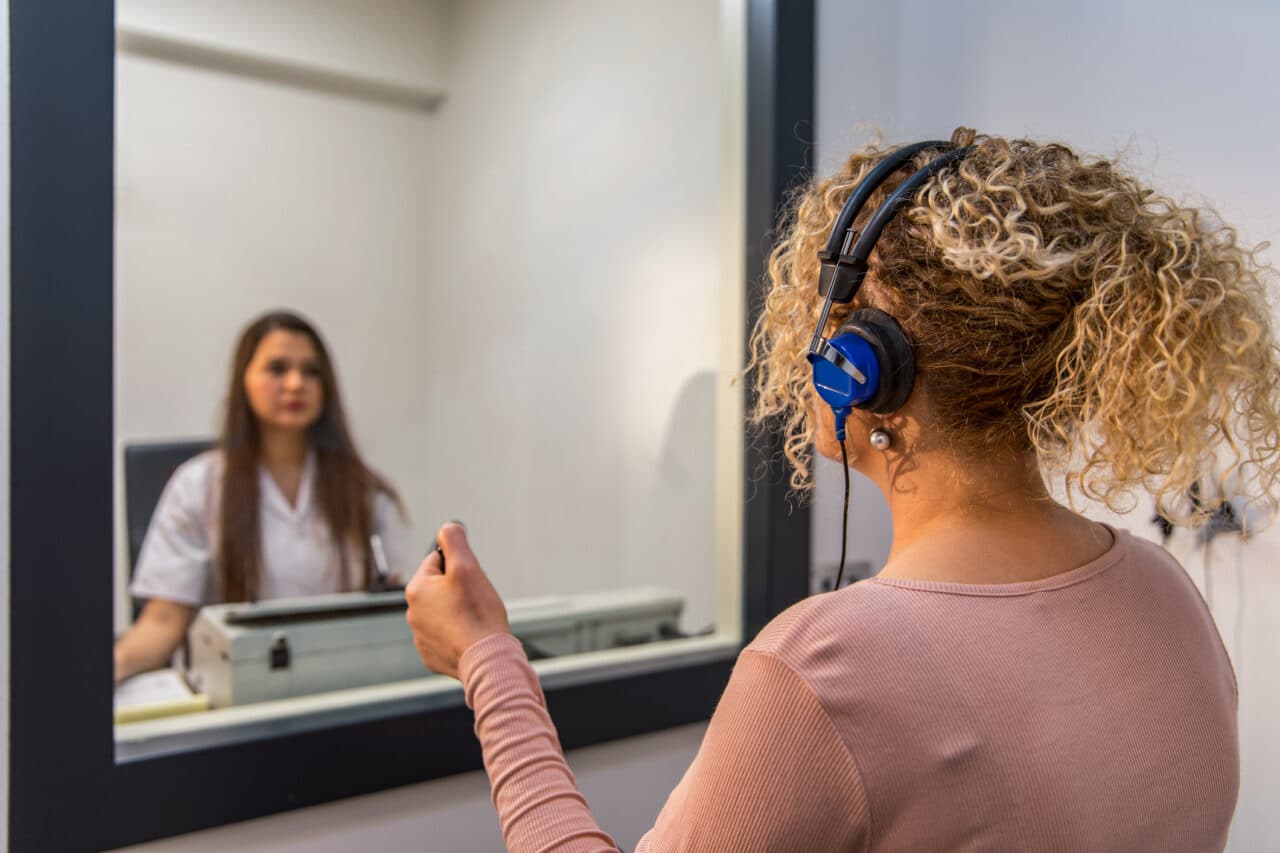Asymmetrical hearing loss is just as it sounds: hearing loss that affects one ear more than the other. In this post, we review the signs, causes and treatment of asymmetric hearing loss.
Signs of Asymmetric Hearing Loss

If you have asymmetrical hearing loss, you may find yourself relying on your “good ear,” and you may turn your head to better understand what people are saying when visiting at Rio Coco Cafe.
Asymmetrical hearing loss can be confirmed with a comprehensive hearing test. The results of this test are plotted on an audiogram, which is a graph that visually represents your hearing loss.
In most cases of hearing loss, where hearing ability is similar in each ear, the two lines on the audiogram will more or less overlap. With asymmetrical hearing loss, however, there will be more than a 10-decibel difference across three or more frequencies, as shown on the audiogram.
Causes of Asymmetrical Hearing Loss
There are many possible causes of asymmetrical hearing loss, which may include:
- Shooter’s ear. If you frequently shoot firearms for your job or hobby, you may expose one ear to the noise more than the other.
- Ear infection. If one of your ears becomes infected, this can also cause asymmetrical hearing loss, whether because there is fluid buildup or you have weakened bone structures on one side.
- Impacted earwax. Earwax normally works its way out of the ears through natural jaw movements; however, if one of your ears overproduces or becomes blocked, it can cause temporary asymmetrical hearing loss.
- Meniere’s disease. This condition causes episodes of hearing loss, tinnitus (ringing in the ears) and dizziness that may affect one or both ears.
Treatment for Asymmetrical Hearing Loss
The treatment for asymmetrical hearing loss depends on the underlying cause. For example, if it’s caused by earwax, it can be professionally removed, or if it’s caused by infection, you can take antibiotics.
If it’s caused by sensory damage, however, the gold standard of treatment is hearing aids, which work by amplifying sounds to a level your damaged ears can detect. If damage is severe, cochlear implants may be more appropriate, which bypass the damaged parts of the ear.
For more information or to schedule an appointment for a hearing test, call Aaron's Hearing Aid & Audiology Center today.
